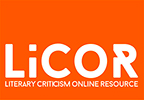‘Poetry,’ declared the English Romantic poet Percy Shelley, ‘is a sword of lightning, ever unsheathed, which consumes the scabbard that would contain it.’ He added, too, that it encompasses within itself the seed of all living and future things: ‘It is as the first acorn, which contained all oaks potentially.’
Shelley’s characterisations of poetry may seem exaggerated today, but they have a long and proud history and are echoed in various forms across the centuries. Like other claims for the unrivalled power of poetry, they take as their starting point the recognition that, for most of the language cultures of the Western world (dating back at least as far as ancient Greece), poetry predates prose as a medium of literary expression. As such, poetry has long been supposed to look back to, and draw much of its energy from, its origins in the early years of human existence – and even, according to now-outdated chronologies of the cosmos, the formative years of the universe. This is why poetry has often been heralded as a purveyor of ancient wisdom and celebrated as an artistic form that is in harmony with the workings of the universe and essential to our well-being. When the contemporary American poet Mary Oliver declares that ‘poetry isn’t a profession, it’s a way of life. It’s an empty basket; you put your life into it and make something out of that,’ her words may seem more sober than Shelley’s, but they are largely in keeping with what Shelley describes. ‘Poetry is indeed something divine,’ Shelley asserts in a passage that anticipates his characterisation of poetry as ‘the first acorn’:
It is at once the centre and circumference of knowledge; it is that which comprehends all science, and that to which all science must be referred. It is at the same time the root and blossom of all other systems of thought; it is that from which all spring, and that which adorns all; and that which, if blighted, denies the fruit and the seed, and withholds from the barren world the nourishment and the succession of the scions of the tree of life. It is the perfect and consummate surface and bloom of all things; it is as the odour and the colour of the rose to the texture of the elements which compose it, as the form and splendour of unfaded beauty to the secrets of anatomy and corruption.
In as far as these and related claims have any validity at all, poetry’s capacity to play such a substantial role in human culture and human existence must reside at least in part in its distinctive formal properties. This is why the common assumption that the careful analysis of a given poem’s form must inevitably turn out to be a dry, dull and unrewarding activity is so wildly misguided. Carried out properly, this kind of analysis can often prove to be one of the swiftest ways of coming face-to-face with some of the most fundamental questions about human nature and the nature of the universe one could possibly hope to find.
For an exercise that demonstrates how the formal properties of poetry are among the main sources of poetry’s power try this one, which uses Emily Dickinson’s poem 657 (‘I dwell in Possibility’) as a case study.
Alternatively, you should either return to the front page of this poetry module or proceed directly to the next unit: Elements of poetry.
